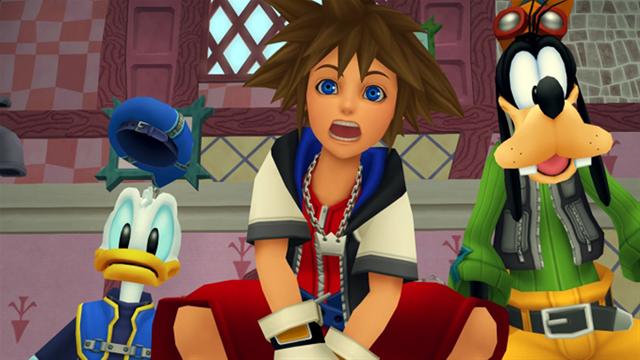Today’s popular video game franchises are made of a lot of parts. Gameplay, visuals, sound, and more come together to produce something greater than the sum of their parts. Narrative elements play a big role as well, though a lot of modern multi-million dollar IPs don’t exactly have stories that make a whole lot of sense. The following games are all well-regarded by critics and fans alike, but lack a little bit when it comes to telling a coherent narrative.
Video Game Franchises That Don’t Make Sense: Kingdom Hearts
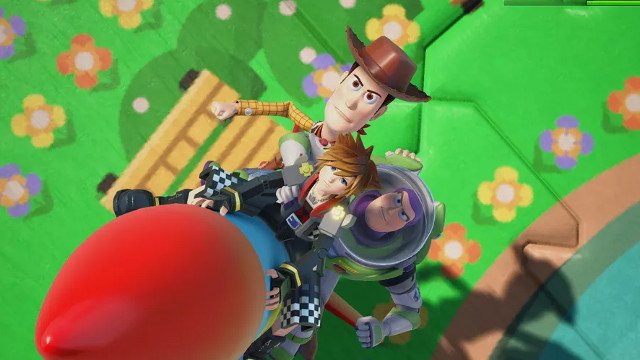
Square Enix and Disney’s Kingdom Hearts series is nothing short of imaginative. Each game in the series allows players the ability to explore Disney-inspired levels ranging from Pirates of the Caribbean to The Nightmare Before Christmas as a spiky-haired protagonist reminiscent of the Final Fantasy series. Characters from the aforementioned franchise sometimes make an appearance, though the focus of Kingdom Hearts is always on its original cast.
Unfortunately, describing the plight of these unique characters is somewhat hard to do. In the first game, Sora must go on a quest to save the Disney princesses and prevent the “darkness” from harnessing the power of a mysterious entity known as Kingdom Hearts. It’s unknown what exactly Kingdom Hearts really is without following the story of each and every game that’s come out for the series.
Each entry introduces more characters into the fold that convolutes the overarching narrative even further, though thankfully there are some handy videos out there that sufficiently explain what the hell is going on. Or try to, at least.
Video Game Franchises That Don’t Make Sense: Metal Gear
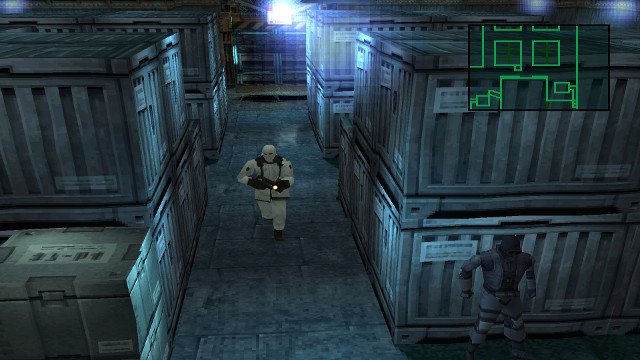
Though the first two Metal Gear games weren’t heavy on story, Metal Gear Solid revolutionized the stealth genre by introducing a story line that saw covert operative Solid Snake infiltrate a top secret base in Alaska in order to prevent a possible nuclear catastrophe. Whereas that narrative alone wasn’t too hard to follow, things start to get confusing when analyzing how sequels tie in to this game.
Metal Gear Solid 2 introduced a government conspiracy, Metal Gear Solid 3 was told from the perspective of the original Snake (who was known as Naked Snake and then Big Boss), Metal Gear Solid 4 went back to the other Solid Snake, and Metal Gear Solid 5 went back in time to tell a follow-up story to the third main iteration in the Solid series. Confused yet?
Well, there are also spin-offs like Portable Ops and Peace Walker to consider, each of which plays a major role in this overarching sci-fi narrative. By the end of it all, you’ll still be wondering who exactly is a clone of who and how it all fits together.
Video Game Franchises That Don’t Make Sense: Pokemon
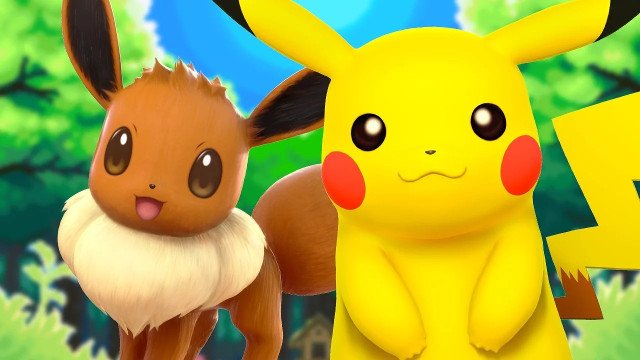
Don’t get us wrong: Nintendo and developer Game Freak have made it abundantly clear that the Pokemon games are primarily made for children. Each main series iteration is, essentially, a reproduction of the games before it after all. A young protagonist begins his or her journey in a region filled with unique creatures to collect via devices called Pokeballs.
Upon capturing these monsters, players can use them to fight in battle against NPCs, other monsters, or real-life human opponents. While there’s some sense as to why the games’ publisher and developer continues to use this formula time and time again, the premise has never really been very logical. For starters, 10-year-olds shouldn’t have the ability to defeat entire criminal organizations using only beginner Pokemon knowledge.
Many questions regarding the world’s rite of passage and existence of Pokemon are never really answered. Perhaps the strangest is the whole concept of Pokemon battles and why it’s an accepted norm in this world. Fans will probably never get the answers they deserve, though future iterations might shed some more light on these mysteries.
Video Game Franchises That Don’t Make Sense: Destiny
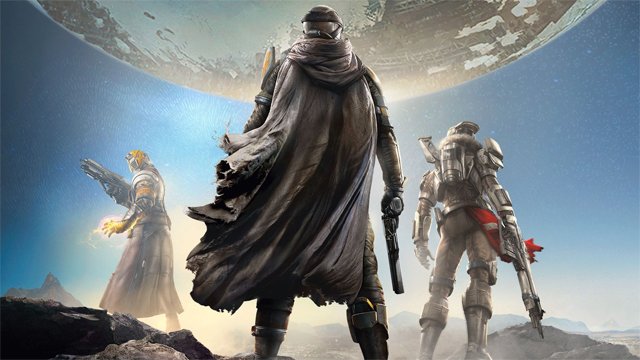
The Destiny franchise today is know for its compelling gameplay and addictive leveling systems, all set within a constantly evolving multiplayer universe. When it comes to what exactly the games are about, however, fans approach murkier territory.
The series’ plot revolves around an entity known as the Traveler who somehow saved humanity from the brink of its own self-destruction. This massive white orb granted people extraordinary abilities that allowed them to become Guardians (defenders of the universe, or something) through a mysterious power simply referred to as “Light.”
Alien threats wish to harness this power for themselves, and it’s up to the Guardians to defend the Traveler from falling into the wrong hands. To explain more about Destiny‘s narrative would involve going into detail on exactly who wants the Traveler and the confusing lore that makes up the game—at lot of which fans have to read up on online in order to figure out.
Video Game Franchises That Don’t Make Sense: Final Fantasy
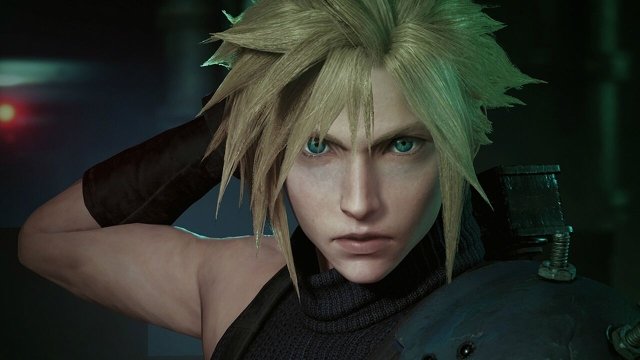
With the exception of X-2 and the XIII sequels, Final Fantasy games have always boasted their own self-contained narratives, meaning fans don’t have to know the story of, say, VIII in order to understand what’s going on in IX. Keeping this in mind, a lot of games in the series simply don’t make a lot of sense when examined on their own.
Final Fantasy VII, for example, revolves around the planet’s life-stream and how protagonist Cloud must stop a dude with long white hair from uniting with it in order to become some kind of god. This dude turns out to be the clone of an alien invader, however, and the world resurrects monsters to fight him. These monsters attack the innocent human population too, but it’s anyone’s guess as to why they do that.
The modern Final Fantasy XIII and XV are equally as nonsensical, as each involves mythical beings that get in the way of the relationships that form between the characters onscreen. Though a confusing narrative has become somewhat synonymous with the franchise at this point, here’s hoping future iterations flesh things out a bit more.
While the franchises above aren’t bad by any stretch of the imagination, their storylines are a bit too esoteric or nonsensical compared to streamlined standards other publishers and developers have abided by. Seeing as how none of these are disappearing any time soon, it’s exciting to think how each will continue to grow from a narrative perspective in the future no matter how much more convoluted they may get along the way.
